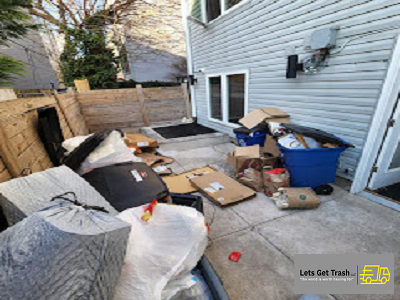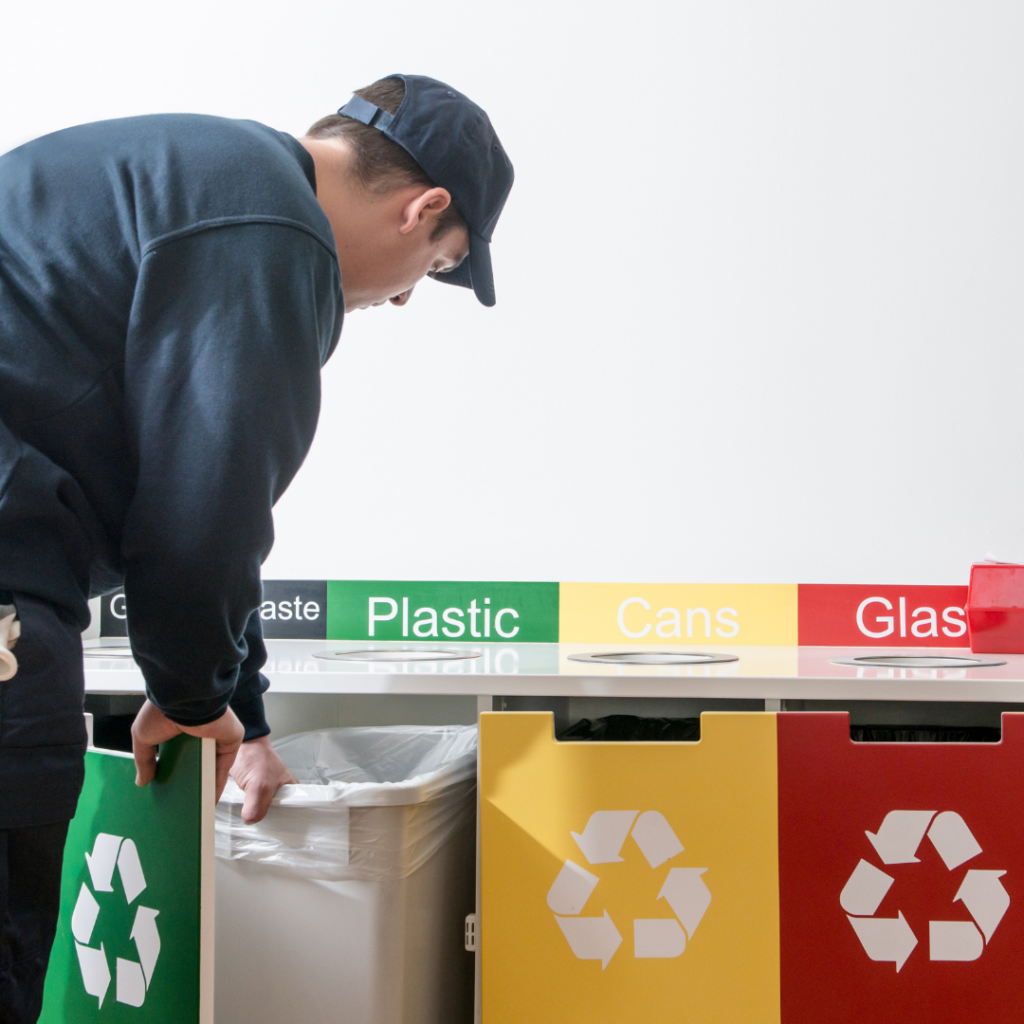Affordable Waste Disposal: Effective Solutions on a Budget
In today’s world, waste disposal is a pressing issue that affects communities of all sizes, from bustling urban centers to rural villages. However, finding affordable waste disposal solutions can be challenging, especially for communities with limited resources. Fortunately, there are effective strategies and solutions available that prioritize cost-effectiveness without compromising environmental integrity or public health. By implementing innovative approaches and leveraging community partnerships, affordable waste disposal can be achieved, paving the way towards a cleaner and more sustainable future.
The Challenge of Affordable Waste Disposal
For many communities, waste disposal costs represent a significant portion of municipal budgets. Traditional methods of waste disposal, such as landfilling and incineration, can be costly to operate and maintain, particularly for smaller municipalities with limited financial resources. Moreover, the environmental and social costs associated with these methods, including air and water pollution, greenhouse gas emissions, and public health risks, further compound the challenge of affordable waste management.
In communities around the world, the management of waste presents a significant challenge, with affordability often at the forefront of concerns. The traditional methods of waste disposal, such as landfilling and incineration, come with substantial financial burdens, including operational costs, maintenance expenses, and regulatory compliance fees. For municipalities, particularly those with limited budgets, these costs can quickly escalate, placing strain on already tight resources.
Moreover, the environmental and societal costs associated with conventional waste disposal methods further compound the challenge of affordability. Landfills, while providing a convenient option for waste disposal, can pose long-term environmental risks, including soil and water contamination, methane emissions, and habitat destruction. Incineration, while reducing the volume of waste, can release air pollutants and toxic ash, presenting health hazards to nearby communities and ecosystems.
In addition to these direct costs, the indirect costs of waste disposal—such as those related to public health impacts, property devaluation, and loss of natural resources—must also be considered. As communities grapple with the consequences of unchecked waste generation, the imperative to find affordable and sustainable solutions becomes increasingly urgent.

The Need for Innovative Solutions
Addressing the challenge of affordable waste disposal requires a shift towards innovative and sustainable solutions that balance economic considerations with environmental and social impacts. One such solution is the adoption of waste minimization strategies, including source reduction, reuse, and recycling. By reducing the amount of waste generated and maximizing the recovery of valuable materials, communities can significantly decrease the financial burden associated with waste disposal while conserving resources and reducing environmental harm.
Composting also offers a cost-effective alternative for managing organic waste, such as food scraps and yard trimmings. Community-based composting programs, decentralized composting facilities, and backyard composting initiatives provide opportunities to divert organic waste from landfills while producing nutrient-rich compost for soil enrichment. Not only does composting offer a low-cost option for waste disposal, but it also contributes to soil health, promotes biodiversity, and mitigates climate change by sequestering carbon.
Collaboration and Community Engagement
Fostering collaboration among stakeholders is essential for developing and implementing affordable waste disposal solutions. By bringing together local governments, businesses, non-profit organizations, and community members, municipalities can leverage collective expertise, resources, and networks to address waste management challenges effectively. Public-private partnerships, community-led initiatives, and multi-stakeholder collaborations can help distribute costs, share risks, and maximize the impact of waste management efforts.
Furthermore, community engagement plays a crucial role in raising awareness, mobilizing support, and fostering behavior change around waste disposal practices. By involving residents in decision-making processes, educational campaigns, and volunteer activities, municipalities can empower individuals to become active participants in waste reduction and recycling efforts. Through outreach programs, workshops, and public forums, communities can educate residents about the importance of waste management and inspire collective action towards a cleaner and more sustainable future.
The challenge of affordable waste disposal requires a holistic approach that considers economic, environmental, and social factors. By embracing innovative solutions, fostering collaboration, and engaging community members, municipalities can achieve cost-effective waste management strategies that protect public health, preserve natural resources, and promote environmental sustainability. As we continue to confront the complexities of waste management, let us prioritize affordability, efficiency, and sustainability in our efforts to create cleaner and healthier communities for all.
Innovative Solutions for Cost-Effective Waste Disposal
Despite the challenges, several innovative solutions offer cost-effective alternatives to traditional waste disposal methods. One such solution is composting, which provides a low-cost option for managing organic waste, such as food scraps and yard trimmings. Community composting programs, backyard composting bins, and decentralized composting facilities offer opportunities to divert organic waste from landfills while producing nutrient-rich compost for soil enrichment.
Another cost-effective solution is source reduction and recycling, which focus on minimizing waste generation and maximizing resource recovery. By implementing waste reduction strategies, such as product redesign, packaging minimization, and reuse programs, communities can significantly reduce the volume of waste sent to landfills while conserving valuable resources. Recycling programs, including curbside collection, drop-off centers, and buy-back programs, offer additional opportunities to divert recyclable materials from the waste stream and generate revenue through the sale of recyclables.
In the face of escalating waste management costs and environmental challenges, communities worldwide are turning to innovative solutions to achieve cost-effective waste disposal. These forward-thinking approaches not only alleviate financial burdens but also prioritize sustainability, resource conservation, and environmental protection. From cutting-edge technologies to community-driven initiatives, a diverse array of innovative solutions is reshaping the landscape of waste management, paving the way towards a more sustainable future.

Advanced Recycling Technologies
One of the most promising innovations in waste disposal is the development of advanced recycling technologies that enable the recovery of valuable materials from the waste stream. These technologies utilize state-of-the-art sorting, separation, and processing techniques to extract recyclable materials such as plastics, metals, glass, and paper from mixed waste streams. By maximizing resource recovery and minimizing waste sent to landfills or incinerators, advanced recycling technologies offer a cost-effective and environmentally sustainable solution for waste management.
Decentralized Waste Treatment Systems
Decentralized waste treatment systems represent another innovative approach to cost-effective waste disposal, particularly in rural and remote areas. These systems utilize smaller-scale facilities, such as anaerobic digesters, composting units, and small-scale recycling plants, to process waste locally and generate value-added products, such as biogas, compost, and recycled materials. By decentralizing waste management infrastructure, communities can reduce transportation costs, minimize environmental impacts, and promote local economic development.
Waste-to-Energy Technologies
Waste-to-energy (WTE) technologies harness the energy content of waste materials to generate heat, electricity, or biofuels, offering a sustainable alternative to traditional waste disposal methods. Advanced WTE facilities, such as gasification and pyrolysis plants, convert organic waste into syngas or bio-oil, which can be used to produce heat, electricity, or transportation fuels. By recovering energy from waste materials, WTE technologies not only reduce the volume of waste sent to landfills but also offset the use of fossil fuels, thereby mitigating greenhouse gas emissions and contributing to climate change mitigation efforts.
Community-Led Waste Reduction Initiatives
Community-led waste reduction initiatives play a crucial role in achieving cost-effective waste disposal by addressing the root causes of waste generation and promoting sustainable consumption habits. These initiatives encompass a wide range of activities, including public education campaigns, zero-waste events, bulk purchasing programs, and repair and reuse workshops. By empowering residents to reduce waste at the source and adopt environmentally friendly behaviors, community-led initiatives can significantly decrease the amount of waste generated, thereby lowering disposal costs and minimizing environmental impacts.
Public-Private Partnerships
Public-private partnerships (PPPs) offer a collaborative approach to waste management that leverages the expertise, resources, and capacities of both public and private sector entities. Through PPPs, municipalities can outsource waste collection, processing, and disposal services to private contractors, while retaining oversight and regulatory control. This partnership model allows for cost-sharing, risk-sharing, and performance-based incentives, leading to more efficient and cost-effective waste management operations. Moreover, PPPs can foster innovation, encourage investment in new technologies, and promote continuous improvement in waste management practices.
Community Partnerships and Collaboration
Collaboration and partnerships among community stakeholders are essential for achieving affordable waste disposal solutions. By working together, local governments, businesses, non-profit organizations, and community groups can pool resources, share expertise, and leverage economies of scale to reduce costs and improve efficiency. Public-private partnerships, in particular, can facilitate the development and operation of waste management infrastructure, such as recycling facilities and composting sites, while distributing costs and risks among multiple parties.
Moreover, community engagement and participation are critical for the success of affordable waste disposal initiatives. By involving residents in decision-making processes, raising awareness about waste reduction and recycling opportunities, and fostering a culture of environmental stewardship, communities can mobilize support for cost-effective waste management solutions. Volunteer-based cleanup efforts, educational workshops, and outreach campaigns can further enhance community engagement and promote sustainable behaviors.
Conclusion:
Affordable waste disposal is not only feasible but also essential for building resilient and sustainable communities. By embracing innovative solutions, fostering collaboration, and engaging community members, municipalities can achieve cost-effective waste management strategies that protect the environment, promote public health, and conserve resources. As we continue to confront the challenges of waste disposal, let us prioritize affordability, efficiency, and sustainability in our efforts to create a cleaner and healthier future for all. Contact us today to learn how you can get involved in affordable waste disposal initiatives and contribute to building a more sustainable community. Whether through composting initiatives, recycling programs, or community partnerships, affordable waste disposal solutions empower communities to address waste management challenges effectively while maximizing limited resources. Together, let us work towards a more sustainable and affordable waste management system that benefits current and future generations alike.






